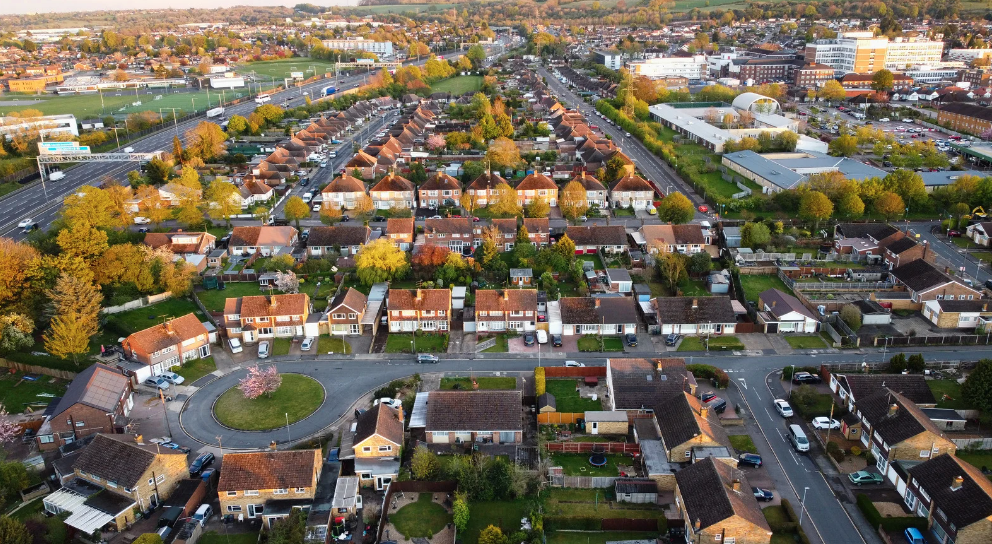On February 6th, 2024, Kennedy Hunt P.C. filed a complaint against Grandview Bluff Estates Homeowners’ Association, Salger Brands LLC, d/b/a Salger Premier Real Estate Team, and Worth Clark Realty, Inc., d/b/a Worth Clark Realty, in violation of the Fair Housing Act, the Illinois Human Rights Act, the Illinois Real Estate License Act of 2000, the Illinois Consumer Fraud and Deceptive Practices Act, and Illinois common law.
According to the lawsuit, in August 2022, our client filed charges against the defendants with the Illinois Department of Human Rights and the United States Department of Housing and Urban Development, alleging sex discrimination, disability discrimination, and retaliation.
Per the lawsuit, our client is a woman living with a disability due to her complex post-traumatic stress disorder (“CPTSD”). At all times relevant to the case, our client was a homeowner in the subdivision in Columbia, Illinois. Per the lawsuit, in September and October 2021, our client bought a home in the subdivision in Columbia, Illinois.
According to the lawsuit, our client expressed criteria for any home she purchased, including having or being able to construct a fence. She did not want a homeowner’s association or any additional restrictions imposed without her having an equal vote regarding those restrictions.
Ultimately, according to the lawsuit, our client was notified that restrictions were null and void and that she could install a fence if it was not white vinyl or chain link. After purchasing the house, our client posted on the homeowner’s association’s Facebook page about building a patio on her property but didn’t receive a response. In October 2021, our client hired construction workers to build a patio on her property.
In January 2022, our client posted on the homeowner association’s Facebook page to give notice of her intent to build a fence on her property. According to the lawsuit, per Facebook, all Grandview Bluff’s members saw the post. There was no response.
In February 2022, our client signed a contract with a company to install a fence at her property. Our client chose a matching style to one of the fences at one of the defendant’s homes. In March 2022, defendant Salger proposed new by-laws, with the same restrictions he repeatedly told our client were “null and void.” According to the lawsuit, “B. Salger knew Plaintiff would not have purchased the house if Plaintiff had known she would have a minority vote and the previous restrictions were in effect.”
Salger then informed our client she could not build her fence as it violated the homeowner association’s by-laws and restrictions. The lawsuit continues:
During this time, Plaintiff received hateful emails from Grandview Bluff members who accused Plaintiff of ruining the neighborhood. The actions mentioned above triggered a resurgence in Plaintiff’s disability symptoms.
According to the lawsuit, the homeowner’s association held a meeting in May 2022, in which Grandview Bluff called Plaintiff a bad mother for wanting a fence for her son’s safety, as “that is called parenting.” Grandview Bluff did not require anyone else to prove a fence was a necessity. Grandview Bluff did not tell anyone else they needed B. Salger’s permission. Grandview Bluff dismissed Plaintiff’s concerns regarding the above-listed actions and inactions and refused to communicate with Plaintiff further.
Per the lawsuit, soon after this meeting, the construction company in contract with our client canceled fence installation at our client’s property because of a threat from the homeowner’s association of litigation.
The lawsuit continues:
On May 2, 2022, Plaintiff spoke with the attorney for Grandview Bluff, and informed her that she believed Grandview Bluff was discriminatorily enforcing rules against her because she is the only sole female owner and the only one subject to an approval process. The attorney hung up on Plaintiff and never followed up.
Two days later, the homeowner’s association served our client with a lawsuit summons for a temporary restraining order and preliminary injunction against the fence for failure to obtain approval and because the proposed fence, which matched others in the neighborhood, would allegedly hurt neighboring property values.
Per the lawsuit:
Grandview Bluff’s lawsuit triggered Plaintiff’s CPTSD to the point that Plaintiff had to go to Barnes Jewish Hospital Emergency Room and eventually the inpatient psychiatric unit. The psychiatrist recommended three more months off work, which added to Plaintiff’s stress.
According to the lawsuit, our client’s neighbors and the homeowner’s association continued actions that affected our client’s disability over the course of several months. Per the lawsuit, the homeowner’s association and its agents threatened our client with another lawsuit if she did not sell her home.
Grandview Bluff, through its agents including but not limited to B. Salger, D. Demond, and B. Bray-Stanely, created a hostile environment, making it impossible for Plaintiff to enjoy her Property. Defendants exploited this situation by pressuring Plaintiff to sell her house for an unreasonably low amount. In March 2023, Defendants constructively forced Plaintiff to sell her home. On or about May 1, 2023, Defendants constructively forced Plaintiff to vacate her home.
The lawsuit seeks damages as would fully compensate our client for her injuries caused by Grandview Bluff’s tortious interference with a contract, including compensatory and punitive damages; costs, expenses, and attorney’s fees, and any additional relief as the Court deems just and proper.
This case is ongoing. For more information, contact attorneys Michelle Faron and Sarah Jane Hunt at info@kennedyhuntlaw.com. If you or someone you know has been a victim of discrimination, our skilled attorneys at Kennedy Hunt, P.C. may be able to help you. Fill out a questionnaire so we can understand your claim.

